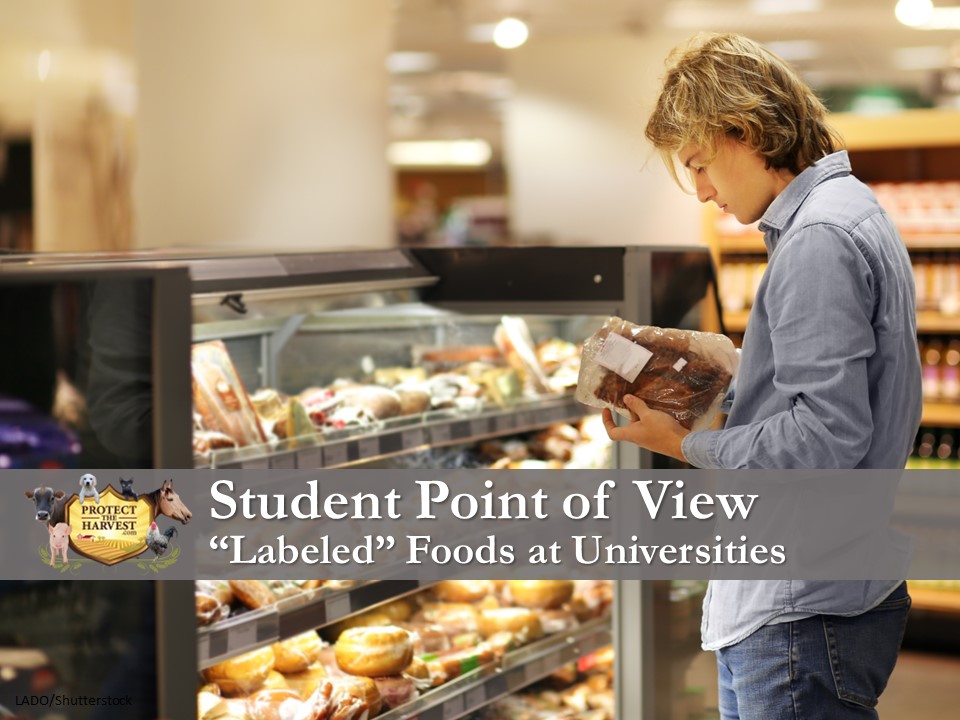STUDENT POV – “LABELED” FOODS AT UNIVERSITIES
Written By a Junior at Oklahoma State University Studying Agricultural Communications and Agribusiness
Free-range, cage-free and organic are labels we see every time we go to the grocery store. In addition, we see products promoting vegan, vegetarian, and plant-based alternatives on almost every aisle. All of these labels could be considered “food bullying,” as they market diets and food choices to people who likely do not know what they actually mean. Most people are just trying to go about their grocery shopping and do not research individual label claims. This issue is especially prevalent on college campuses which find themselves trying to cater to a wide variety of fad diets and “foodie” trends among the student body.
In my own personal experience attending Oklahoma State University, I do not feel these diets have been “pushed” onto me. However, I will note that plant-based, organic, and other labeled items are available at almost every dining option on campus. Included in those options are on-campus convenience stores which boast they sell plant-based meat options and organic produce to students. These products are all marketed as “healthier” alternatives to regular food.
Oklahoma State University is an agriculture-based university, which I thought would influence how “labeled” foods were presented on campus. For instance, during my freshman year I had a plant and soil science professor debunk the idea that organic means better in the produce section. This showed that at least some faculty members have differing views on “labeled” foods. For this reason, I reached out to a friend and peer studying nursing at McMurry University, a non-agriculture school in Abilene, Texas. I wanted to get another student’s perspective on how food labels affect her daily life at school.
During our conversation, my friend shared that she did not see much evidence of what I described as “food bullying” on her college campus, but she has seen quite a few students who perceive organic, cage-free and free-range foods as healthier. She also noted that the same views were often held about vegan and vegetarian food options. She attributed this ideology to misinformation about these “labels” being pushed by the news media and some students, more so than by the university administration.
By the end of our conversation, we both concurred that the misinformation about labeled foods came more from the student body and was simply perpetuated by the universities. This includes the universities promoting cage-free, organic, plant-based and free-range foods as dining options and university-owned convenience stores as “healthy” options. There is also a lack of proper education of students regarding the true meaning behind these labels.
With all of this in mind, I believe it is extremely important for both agriculture and non-agricultural universities to educate students about what these label claims actually mean, which is quite often different than what they imply. Once students are educated, and have all the information about these foods, they can make informed decisions on their own about their personal food choices. This saves them from joining diet cultures such as veganism and other plant-based diets simply because they think they are eating healthier. The idea that these diets are healthy is perpetuated both on and off campus and can result in young people not eating the right foods to meet their nutrition needs.



